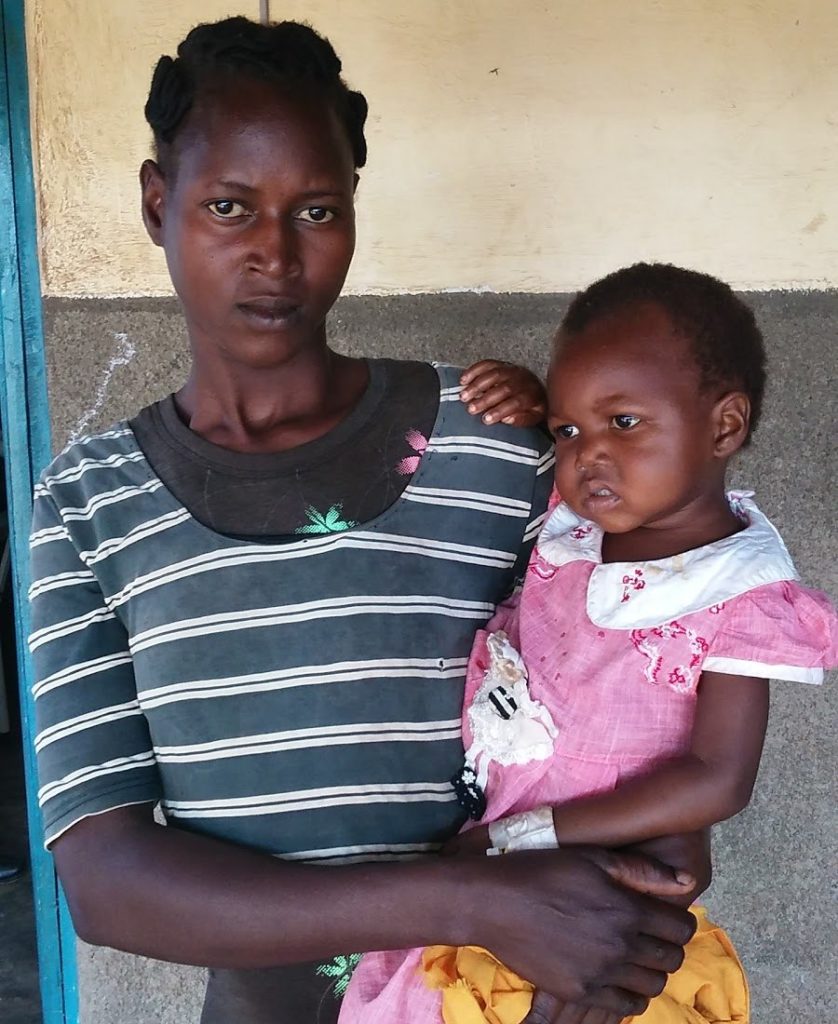Twenty-three-month-old Cecilia arrived at St. Therese Hospital sick and weak with malaria. Her already precarious condition was further complicated by the fact that she was severely anemic. Carrie Flaherty, a registered nurse from New York who is volunteering in South Sudan, explained the critical nature of her condition:
“The National Center for Biotechnology Information categorizes anemia as a hemoglobin of less than 11 g/dL for children under six years of age. In my experience, patients are generally symptomatic and require a transfusion if their hemoglobin is less than 6 g/dL. Cecilia had a hemoglobin of 3.6 g/dL.”
“She was not what you’d expect an almost two-year-old to be like. She was pale, and her fingertips were white. She was lethargic and irritable. She just lay there, next to her mother, too weak to do anything.” – Carrie Flaherty, RN, CMMB volunteer
In places like South Sudan, malaria and anemia are among the leading causes of pediatric deaths. Like so many low-resource hospitals, St. Therese has no stock of blood products. For patients in desperate need of a transfusion – patients like Cecilia – they must find family members who meet certain criteria and are willing to donate.
Unfortunately, there were no family members who were compatible with Cecilia’s blood type. A situation like this is a death sentence for a child and it should have been for Cecilia. But luckily, Martin Rubino, another CMMB volunteer serving in South Sudan, heard about Cecilia and volunteered to donate his perfectly compatible blood.
After his donation, Cecilia received the transfusion and later that afternoon she was “sitting up in bed, smiling, and looking more alert and energetic. She was discharged a few days later, a lively toddler once again.
Sadly, this is not the fate for too many children. For too many children, a lack of blood, medicines, or medical supplies means death. But this can change, with your help.
Any gift, $100, $200, $500, or any amount can help ensure mission hospitals, like St. Therese in South Sudan, have access to lifesaving supplies, including blood, essential medicines, and medical supplies, so that babies like Cecilia have a chance at a healthy life.



